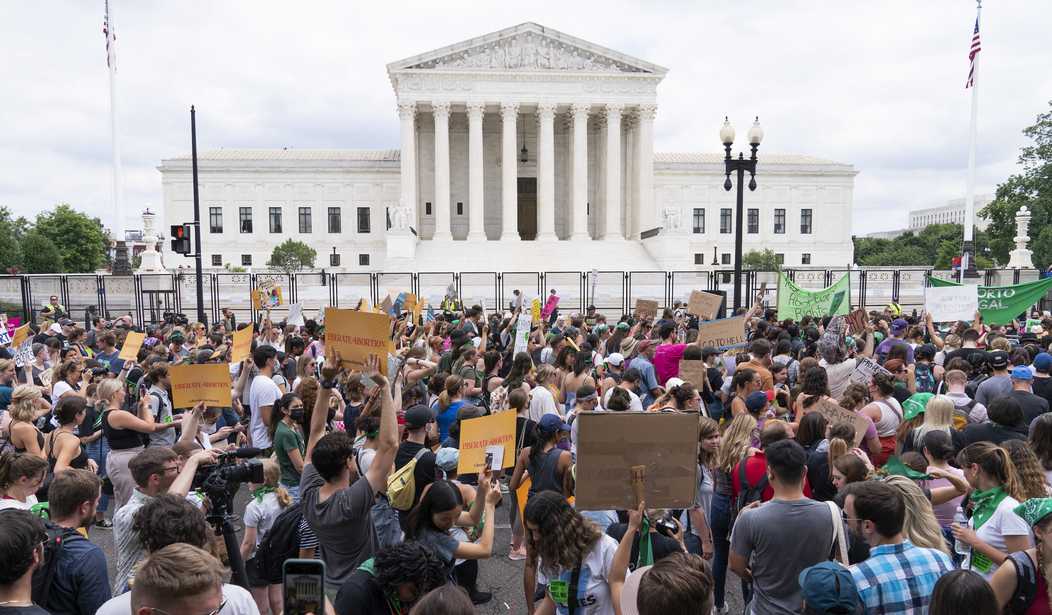The Supreme Court of the United States agreed on Monday to review a case that could take a major step toward reining in unaccountable federal bureaucrats and reducing the power and size of the bloated federal government.
The case that you're likely to hear a whole lot more about in the days and weeks ahead is Loper Bright Enterprises vs. Raimondo. You're also going to hear a lot more about "Chevron deference" (more on that below). The precedent will face scrutiny in the case as it has shielded federal agencies from review or accountability and allowed the administrative state to expand and act with impunity based on whatever interpretation of federal law a given administration prefers.
...Here is the question: “whether the Court should overrule Chevron or at least clarify that statutory silence concerning controversial powers expressly but narrowly granted elsewhere in the statute does not constitute an ambiguity requiring deference to the agency.”
— Jonathan Turley (@JonathanTurley) May 1, 2023
Essentially, Chevron deference means bureaucrats at federal agencies can read between the lines of non-specific laws — or pry the lines even wider than it seems the legislative branch may have intended — to fill in any ambiguities in a given statute and then receive deference from the courts based on an agency's interpretation of a law.
Here's how Stanford Law explains Chevron:
It is the idea that in litigation over federal agency action, the courts will defer to the agency’s own construction of its operating statute, unless that construction is outside the range of reasonableness, usually because the meaning of the statute is clear. The effect is to give the executive branch considerable leeway in determining the scope of its own power. Although first announced in 1984, Chevron deference has become a central pillar of the modern administrative state. It is a systemic thumb-on-the-scales in favor of the government’s view of the meaning of the statute, even if that view changes with political winds and even if it contradicts earlier judicial interpretation.
Recommended
As alluded to, Chevron deference comes from the Supreme Court's 1984 decision in Chevron U.S.A. v. Natural Resources Defense Council and is made up of a two-part process. A court decides whether a law is specific or directly addresses a question it is considering. If the statue is deemed ambiguous, then the agency's interpretation is allowed to stand if the subsequent actions are deemed to be "reasonable interpretations" of statutes.
"Reasonable," as you may guess, has been stripped of any real meaning and made to fit whatever the executive branch wants to accomplish. As our friend Bonchie explained over at RedState, Chevron is to blame for a mountain of executive overreach cases and has contributed significantly to the invasive growth of the administrative state:
That’s how you get the ATF banning bump stocks despite there being no actual statutory allowance for such a violation of personal freedom. It’s also how you get the lion’s share of environmental regulations, including literal puddles in backyards being hit with ridiculous, costly EPA enforcement. The federal government has been completely out of control for decades, and the Chevron Doctrine has been at the heart of many of the abuses.
Now, the Supreme Court has agreed to consider and rule directly on Chevron deference, and the math for the case is interesting. As Bonchie noted, Justice Ketanji Brown Jackson is recused from the case "meaning that the conservative wing would only need to muster four votes," and "most of the conservatives on the court have already signaled a willingness to curb the power of the bureaucratic state by rolling back the Chevron Doctrine."
"The left’s bureaucratic fiefdom is facing oblivion, and that’s a very good thing," Bonchie noted, putting a bow on things and explaining why conservatives should be following the case and looking forward to another potential landmark win for individual liberty and the rule of law from the high court.

























Join the conversation as a VIP Member